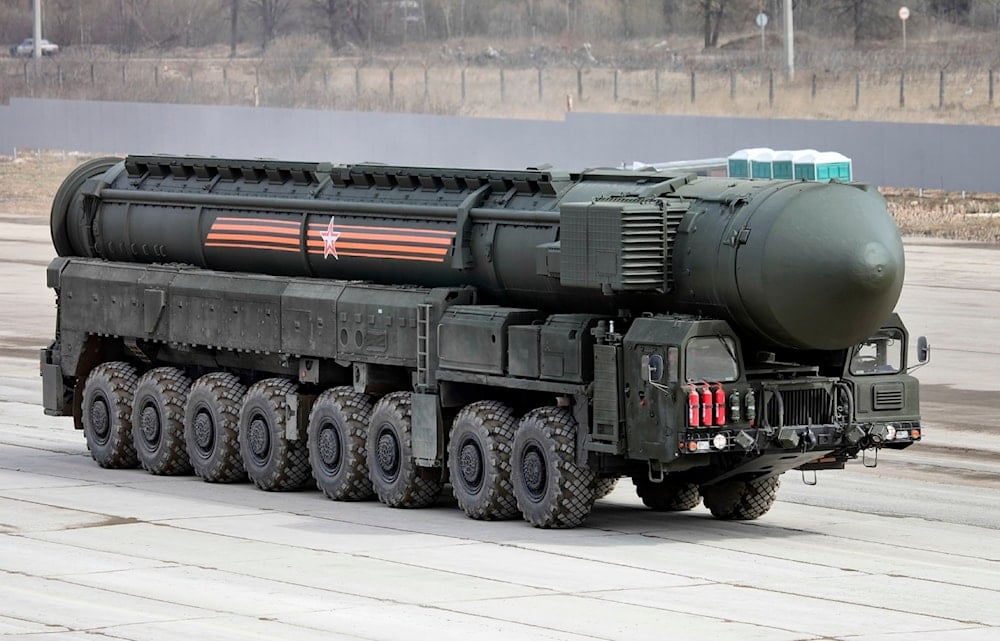Russia built missile arsenal during INF deployment freeze: Deputy FM
Deputy Foreign Minister Sergey Ryabkov said Russia used the INF deployment moratorium period to continue research and production, resulting in a substantial stockpile of intermediate- and short-range missiles now ready for potential deployment.
-

Mobile launcher of the RS-24 Yars complex, which is the basis for the Oreshnik missile (Agencies)
Russia has built up a significant stockpile of intermediate- and short-range missiles despite observing a moratorium on their deployment, Deputy Foreign Minister Sergey Ryabkov said on Sunday.
Speaking on Rossiya 1 television, Ryabkov emphasized that the moratorium, introduced after the 2019 collapse of the Intermediate-Range Nuclear Forces (INF) Treaty, never prohibited research or production.
"When this moratorium was announced, we stated that it was about refusal from deployment, but research and development and refusal of them were not mentioned. That is, this time was used to create appropriate systems and have a sufficiently solid arsenal in this area, which, as I understand, exists in our possession," he explained.
Missile standoff
Ryabkov's comments came just days after the Kremlin formally ended its self-imposed freeze on deploying such weapons. Moscow cited NATO's plans to base new US systems, including the Typhoon and Dark Eagle missiles, in Germany by 2026 as a key factor, alongside what it describes as "unchecked US militarization" in Europe and the Asia-Pacific.
The Russian Foreign Ministry stated last week that the conditions for maintaining the moratorium had "disappeared," pointing to the West's refusal to agree to a reciprocal deployment ban. Kremlin spokesperson Dmitry Peskov confirmed there are now "no more restrictions" on Russia, saying Moscow will position INF-class missiles as needed to safeguard its strategic security.
Arms escalation
The shift comes amid reports that Russia's advanced Oreshnik hypersonic intermediate-range missile, capable of carrying either conventional or nuclear warheads at speeds of up to Mach 10, has entered production and been deployed to Belarus. Combined with the readiness of these systems, the policy change underscores what arms control analysts warn could be the opening phase of a new missile arms race in Europe.
The INF Treaty, a cornerstone of Cold War-era arms control signed in 1987, banned land-based missiles with ranges between 500 and 5,500 kilometers until the United States withdrew in 2019, accusing Moscow of violations. With that accord gone and the New START treaty set to expire in 2026, experts fear the erosion of remaining arms control frameworks will further destabilize the global strategic balance.
Read more: Russia no longer has restrictions on INF missiles deployment: Kremlin

 3 Min Read
3 Min Read









